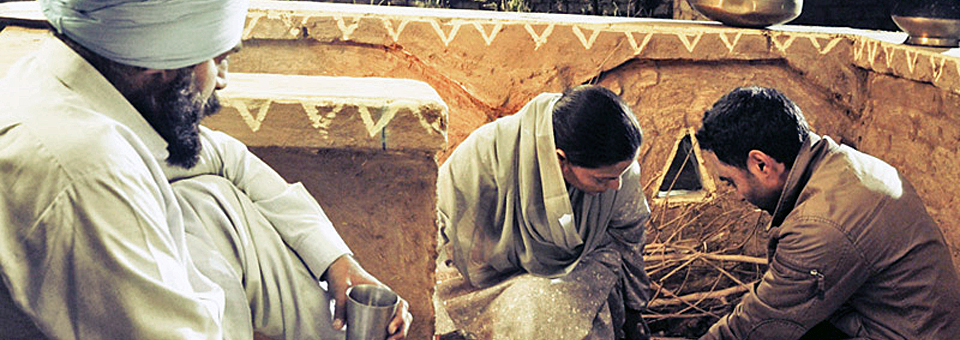No doubt many readers will already be aware of the recent hate crime committed against Prabhjot Singh, a medical doctor and professor from Harlem on the east coast of the United States. He was walking home when attacked by a gang of young men riding bicycles who seemed to think he resembled a terrorist. Late last night, a news article was published in which Singh responded to his attackers with what I perceived as an astute sense of understanding totally in-keeping with the Sikh way of life. I decided to share the article on my facebook wall commenting, “This is how you respond to hate! Prabhjot Singh is going nowhere, wants to see his attackers rehabilitated, not incarcerated, and is going to work to make his society a better one. What a guy!” No sooner had I done this than I was tagged in a facebook photo which suggested that Prabhjot Singh’s response was the opposite of Sikh-like behaviour and should not be lauded. A few momentary exchanges with the ‘tagger’ followed – all very cordial – which led me to think once again about the lack of open debate in the Sikh community.
This article is not about the opposing arguments mentioned above (both with their own merits); instead it is a lament of our failure as Sikhs to build platforms on which we can engage in worthwhile discourse. Our ideology, history and culture is vast and although largely our differences of interpretation are small, they do exist.
Like the great classical civilisations, Sikhs were always intended to gather together in order to deliberate over their understanding, knowledge and direction. For a Sikh, there are none who are flawless except for the Guru and the Creator; all others can err, misinterpret or misunderstand. Therefore it was and is vital that the Sikhs gather to discuss and debate as a collective, alongside their own solitary contemplative endeavours.
But whilst the Sikhs of the past, even those from as late as the mid-twentieth century could find a place to engage with others their contrasting viewpoints, there are few spaces provided for Sikhs to do so today. This is of course just another consequence of our institutions being mired by corruption and infiltration, but one has to wonder why that has prevented us Sikhs in the Diaspora from establishing open ground. Anybody who has ever attended a Gurdwara AGM or Panthic meeting will attest to the factionalised and intimidatory atmosphere which negates the public airing of contrasting views. It is indeed a real shame because it is through consideration of thoughts that are alien to us that we can truly understand what it is we ourselves believe.
That other great bastion for learning and open debate – Universities – offer even lesser hope. Sikh society ‘discussions’ tend to be dominated by one or two students, usually those who have learnt the knack of belittling others with a deftly memorised fact or having mastered the art of hiding behind Sikh personalities whom they use rightly or wrongly to endorse their viewpoint. I would dearly hope that there are exceptions to that, but the experiences of recent years, would suggest not.
It is one of the reasons why we are looking to spin-off our Youtube series ‘Left v Right’ into a competitive University edition and a national competition encouraging more Sikhs to learn the art of debate. If we can take small steps and create our own spaces for discussion we can become the World that we want to see. In that vein, the Sikh Study circles of the Sikh Education Council who I volunteer for are growing in number every month inspiring more Sikhs to really get to grips with the Sikh way of life. Promising stuff! Perhaps i’m making more of this than need be. Perhaps Sikhs aren’t suffering from a lack of opportunities to deliberate. I’d be happy to debate the issue.





